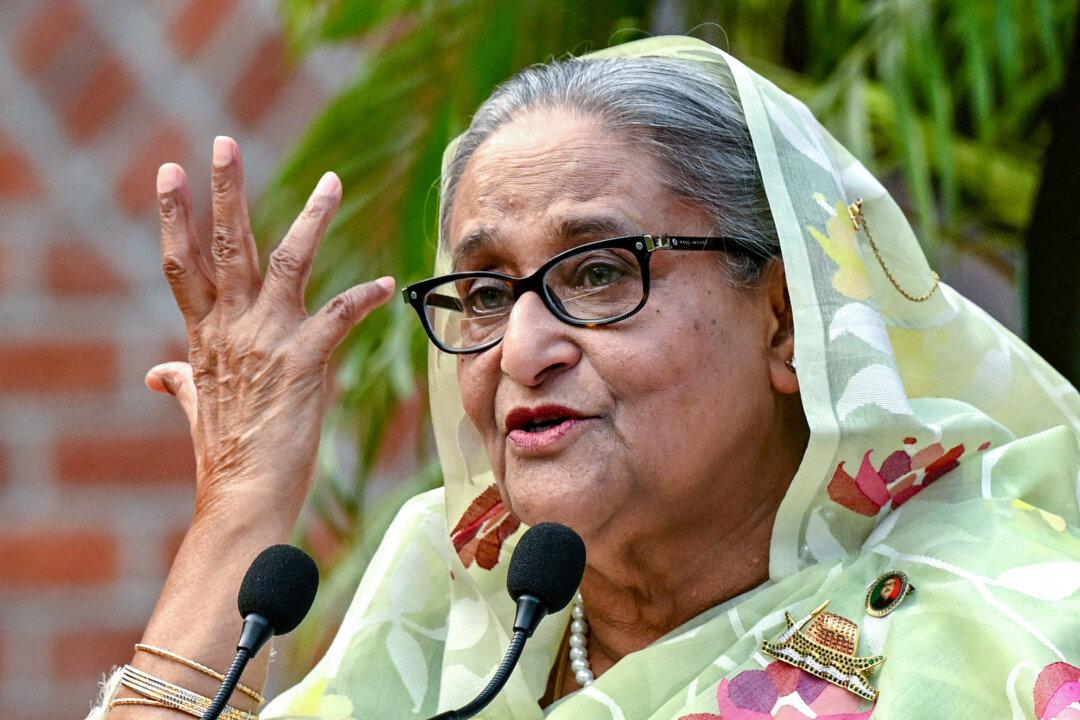A Dhaka court has ordered an investigation into ousted Bangladeshi Prime Minister Sheikh Hasina for her alleged role in the death of a grocery shop owner during last month’s deadly student-led protests in the city.
The case, filed by businessman Amir Hamza against Hasina and six others, was accepted by Dhaka’s chief metropolitan magistrate’s court following a hearing on Aug. 13, according to Hamza’s lawyer, Anwarul Islam.





